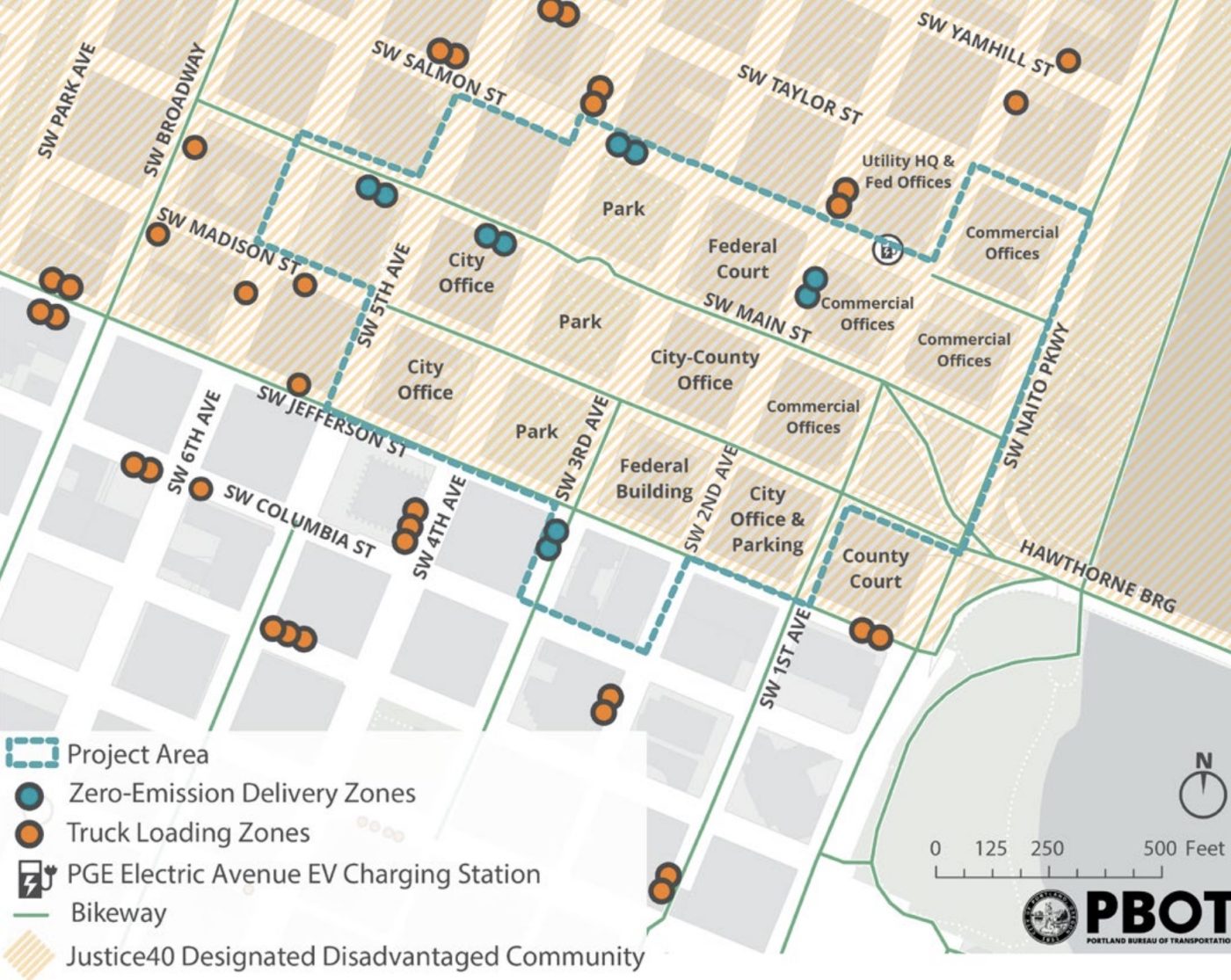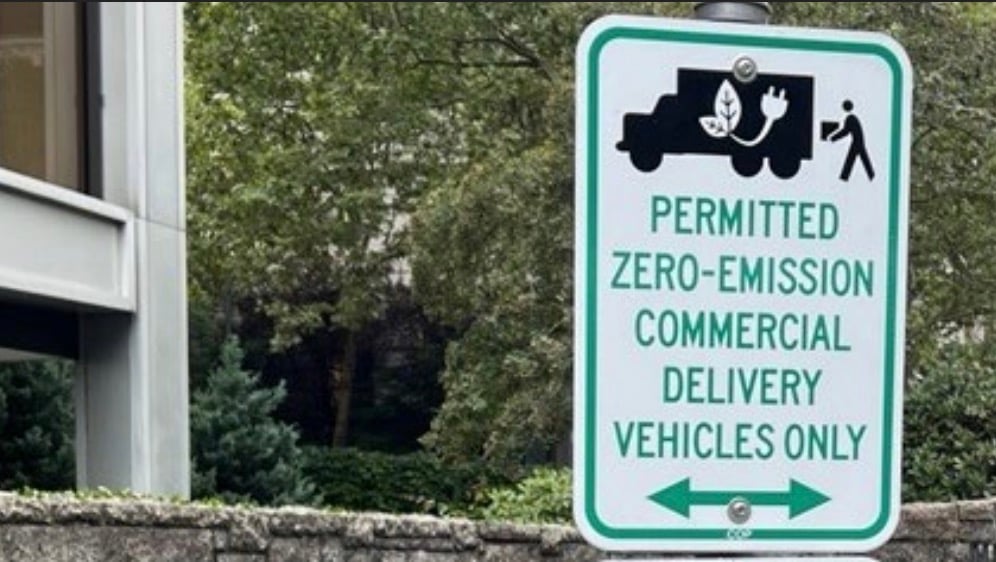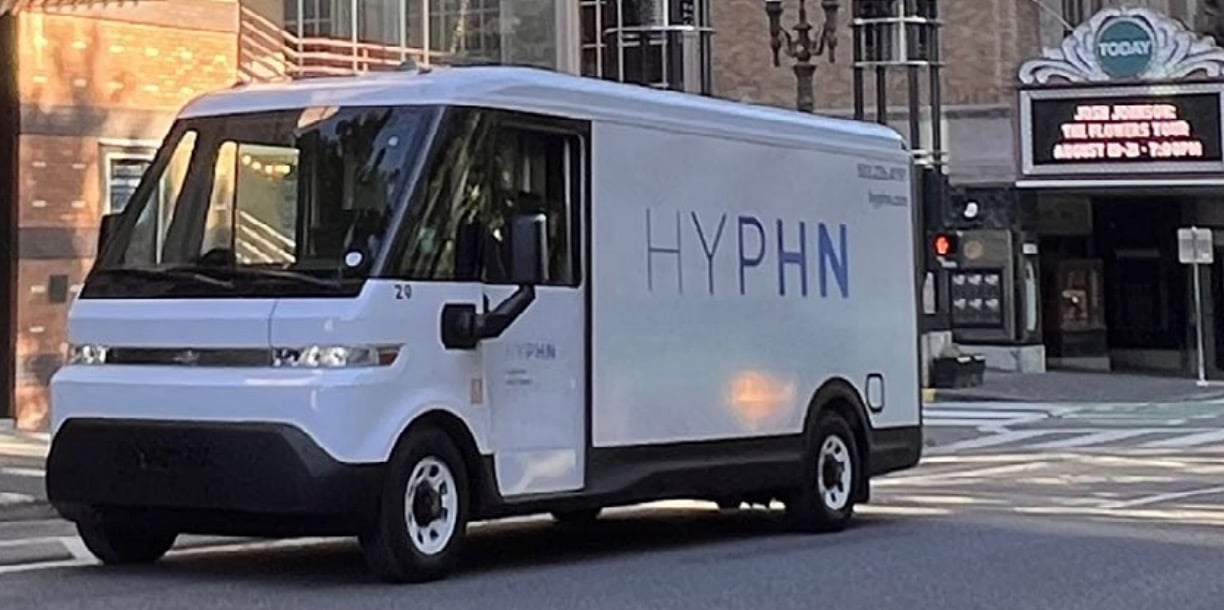With regards to American cities making an attempt revolutionary issues within the transportation realm, there’s an unlucky custom of mainstream media and the same old skeptics going into full, “sky is falling!” mode. Earlier than the primary main bike share system launched and earlier than congestion pricing was applied in New York Metropolis, the outrage machine kicked into excessive gear — solely to fall silent when the issues ended up figuring out as marketed (if not higher).
Portland’s ‘zero emissions supply zone’ effort was no completely different. When information of the transportation’s bureau’s undertaking got here to mild, native media did their factor. It bought so unhealthy I needed to publish a narrative simply to attempt to set the document straight. And now that the six-month pilot is over, a report issued by the Metropolis of Portland final week says it was a hit.
Portland experimented with zero emission supply zones as a result of our metropolis has adopted local weather and freight plans that particularly prioritize making trucking much less poisonous to the surroundings. Round 40% of Multnomah County’s carbon emissions come from the transportation sector and the Portland space is within the prime one % of the areas with the very best diesel emissions within the U.S. Past the well being of our lungs and planet, the present supply truck fleet is giant and operators too typically make the most of lax enforcement. This results in congestion and security hazards when drivers double park, circle round to seek out parking, block public areas throughout deliveries, and so forth.
From a motorcycle security perspective, using large vans within the downtown core has been a serious concern for a few years and we’ve had too many individuals killed in collisions with truck operators.
To deal with these points, in 2023 the Portland Bureau of Transportation received a $2 million grant from the U.S. Division of Transportation’s Strengthening Mobility and Revolutionizing Transportation (SMART) program. The thought was to chop emissions from central metropolis truck deliveries and encourage several types of autos to make them. PBOT selected to deal with curb zone and parking rules to realize their objectives.




“Cities are the centerpiece of the economic system and we management precious property, just like the curb zone,” said PBOT Director Millicent Williams in an introduction to a report on the six-month pilot undertaking launched final week.
PBOT’s pilot undertaking consisted of a 16-block space of downtown (roughly SW Naito to sixth and Salmon to Jefferson) the place solely zero-emission supply autos have been allowed to make use of 10 particular loading zones. Autos with inside combustion engines might nonetheless use metered parking areas, inside loading bays, or they may do their loading exterior the zone. To assist corporations adjust to the brand new rules and to help their parking enforcement groups, PBOT created a free, digital parking allow.
PBOT employees additionally labored straight with supply corporations to assist them discover options for his or her companies that will adjust to the experiment. They helped corporations supply zero-emission autos, examined using microhubs the place electrical autos might function effectively, and inspired using electrical cargo trikes for last-mile deliveries. Within the report, PBOT says they “promoted cyclelogistics,” and most of that effort centered on B-line City Supply, an area firm that made 45,000 deliveries to over 200 clients by pedal (and battery) powered electrical cargo trikes final yr.
PBOT linked B-line to new potential clients, labored with site visitors information agency INRIX to map e-cargo trike routes and utilization, and explored insurance policies and packages that would improve e-cargo trike deliveries sooner or later. That is very promising collaboration! To present you a way on the place PBOT’s head is relating to e-cargo trike deliveries, learn this excerpt from the report:
“In city areas, cargo bikes might be an efficient substitute for last-mile supply autos with inside combustion engines. Amongst different advantages, cargo supply bikes (together with e-cargo tricycles) scale back dangerous air pollution, take up much less curb area, can keep away from congestion by utilizing bicycle infrastructure and occupying much less roadway area, allow parking nearer to the supply vacation spot, and pose much less of a hazard to different street customers. Additionally they value a lot much less to buy and preserve than a supply truck, offering value financial savings. Whereas they aren’t appropriate for all environments or supply sorts after which might carry fewer items, a UK examine estimated 10–30% of journeys by supply and repair corporations might doubtlessly get replaced with e-cargo bikes.”
One of the promising steps PBOT might take to encourage extra supply trikes is to ascertain extra microhubs close to main locations. “Constructing cyclelogistics microhubs in central areas might allow bicycle supply corporations to function effectively and reliably,” PBOT writes within the report. And when you assume that is all speak and no motion, take into account the steps already taken to ascertain one such supply hub on the future James Beard Public Market.
B-line CEO and Founder Franklin Jones informed BikePortland this morning he was impressed with how PBOT approached this work. “The pilot confirmed PBOT has a severe curiosity in tackling actual challenges related to city logistics,” and it, “underscored that innovation and collaboration between the private and non-private sector is alive and properly,” he stated.
So, how do we all know it labored? Listed here are just a few tangible outcomes touted by PBOT of their report:
Six new corporations contracted with B-line for supply companies.
Over 65 zero-emission automobile digital permits have been issued.
Supply firm DHL purchased three electrical autos for deliveries in Portland and put in new chargers at their native facility.
Amazon rerouted their zero-emission autos into the pilot space.
The primary FedEx-branded zero-emission autos in Portland have been noticed within the undertaking space in March 2025.
HYPHN, a Portland-based transferring firm, bought their first zero-emission automobile because of the pilot.
The Metropolis of Portland Printing & Distribution division led by instance and bought an electrical van for native deliveries, a transfer estimated to keep away from practically 90 metric tons of GHG emissions — the equal to carbon sequestered by 90 acres of forests in a single yr — over its lifetime.
From right here, PBOT needs to push additional. Their subsequent steps wish-list consists of: increase the zero-emission zones, take into account new enforcement methods, develop a pilot for on-street microhubs, and replace metropolis coverage to help e-cargo trikes — which they see as together with quadricycles and electric-assist trailers.
Portland has a dedication to slash carbon emissions by 50% or extra by 2030 and to be internet zero by 2050. Regardless of the fears this new strategy to an previous downside stoked in some circles, it looks as if an incredible success for our metropolis and the planet on a number of fronts. Or, because the report states: “For the Metropolis, this pilot represents one other step towards encouraging a way forward for decarbonized transportation.”
— Zero-Emission Supply Zones Pilot Govt Report
































